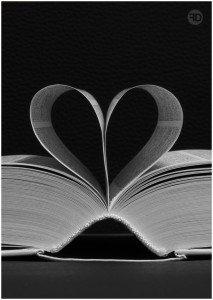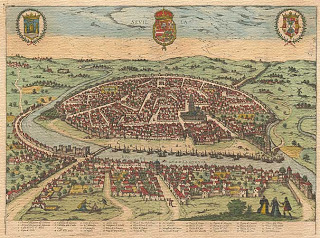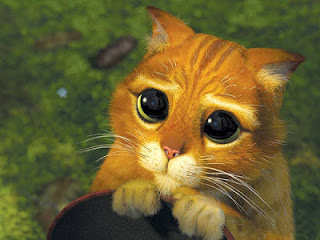I was really stuck for a topic this month. I tweeted the question ‘what is hard about writing’ and got back an overwhelming number of really good answers and many of them were familiar: finding time, finding inspiration, the grind of editing, having a story stall out on you, uncooperative characters, not believing in yourself as a writer or trusting your voice … you know them all. I could and probably should have written on one of those, but instead, I thought I’d write about the one thing no one expects me to write about.
Love.
People don’t think I write about love. They think I write about sex. I write erotic fiction, not erotic romance, so people assume I don’t think love is important or worth writing about. They often assume I’m a cynic about it. But the truth is, there’s love in almost all my stories. It’s not explicit, and it’s not always sane, or permanent, or perhaps it’s not a kind of love you recognize, but I believe it’s love all the same.
The media has perpetuated a very idealised, standardised model of love. The lovers look into each other’s eyes and they know – they KNOW – this is love, this is real, this is forever. Cue the violins. And post-modernity hasn’t done a fucking thing to advance it. It’s just commoditized it. We may be all for same-sex marriage now, but we want their love to look just like that love too. Eternal, monogamous, spiritual, the foundation of a family unit. Heck, even Sookie Stackhouse can’t fall in love with the next vamp until she’s fallen out of love with the last one. And the most meaningful, best sex is the sex you have with the person you love.
We want to believe that love is universal, but I’m here to challenge you on that. I think the thing we call love is a cultural construction. I’m not going to go all biological on your ass and talk about love as an evolutionary strategy. Mostly because the jury is a long way out on that one. Nor am I going to say that we are imagining the feeling we identify as love, although I don’t think it matters whether we are imagining it or not. It has massive real-world consequences all the same.
I’m saying that there is most certainly a phenomenon that humans experience that destabilizes us as hermetically sealed individuals. We allow another in so deep that it breaks the seal on our individuality. They bleed into us, and if it’s reciprocated, we bleed into them. We stop being ‘alone’ in the the big sense of the world.
It is the culture we are born into that uses models and language to help us order that experience in our brains. Although love occurs in all cultures, how we identify it – the rules we expect it to obey – bear the marks of how our societies seek to order themselves.
Let me give you an example. I know this 24-year-old Vietnamese woman named Tuyet. She was born down in the Mekong Delta in a tiny little village. Grew up dirt poor. Her mother died of cervical cancer because the family had no money to treat it. She came to the city bone thin – not starving, because no one starves here, but rake thin from a poor diet – looking for a job to support herself and send money home to her family.
It’s a very common story in developing countries. She found a day job, but she became a part-time sex worker because the money was much better than anything she could earn with her lack of education or qualifications. In the course of her work, she met a 68-year-old American named Burt. Divorced, overweight, balding, bit of an alcoholic, not a prince by any means. And they marry. He gets all the sex he’s ever dreamed of and she gets the kind of financial security she’s never even dreamed of. She says she loves him. He says he loves her.
To Western eyes, there are nasty words for this sort of a relationship. In the West, loving someone for giving you sex is not love. In the West, loving someone for giving you economic security isn’t love. But to people in developing countries, you DO love someone who is willing to take care of you, and keep you safe, and pay your medical bills, and has the wherewithal to feed your family.
I’ve lived in foreign cultures long enough not to judge. They are giving each other what they need. They have allowed themselves to be vulnerable and dependent on each other for things that each of them find very important. If they call it love, then… it’s love.
One of my co-workers is Indian. He’s from New Delhi. His marriage was arranged. He met his wife once before they got married. Both their families each believed that they were two kind, decent people and they would make a good match. Both he and his wife believed that their families had their best interests at heart. They’ve been married seven years now, and have a little boy. The wife, Medha told me that she fell in love with him about 6 months into the marriage, after she was already pregnant with their child.
These are models of love we don’t understand because our understanding of love is culturally proscribed.
I have fallen in love a number of times, and out of love fewer. There are people I loved who I continue to love, even though I’m not with them anymore. Even though I was only with them a short time. And I have never ever loved two people in the same way. There isn’t one kind of love. There is a love for every love you fall into. There are people I fell in love with fast, and out of it fast. But in the moment, it was love. Our belief that only long-lived emotion is love is also culturally proscribed.
It’s incredibly ironic that we all agree that love hurts, but we taught to yearn for a love that doesn’t hurt. In Western concepts of romantic love, it only hurts in the short term, but in the long term, it turns into a kind of endless warm jello bath.
Another interesting Western belief is that love needs to be reciprocated. If it isn’t, it’s not love. It’s pathological obsession. It’s sick and unhealthy. We also believe that love needs to be physically consummated. If it isn’t, at some point, then it’s tragic and pathetic. But that’s only because it falls outside our cultural construction of how we’ve defined romantic love.
I’m not saying that because you adhere to your cultural understanding of love you’re wrong. I just want you to consider that it is a construction. It’s not the TRUTH, it’s a truth. It’s the truth of love in your culture. You can chose to insist upon it, but you can also reject it, and decide on another definition. A personal one.
I guess that’s the point of my post. I want to encourage you to consider that the definition of what love is isn’t static or etched in stone. And perhaps write about alternate versions of it.











